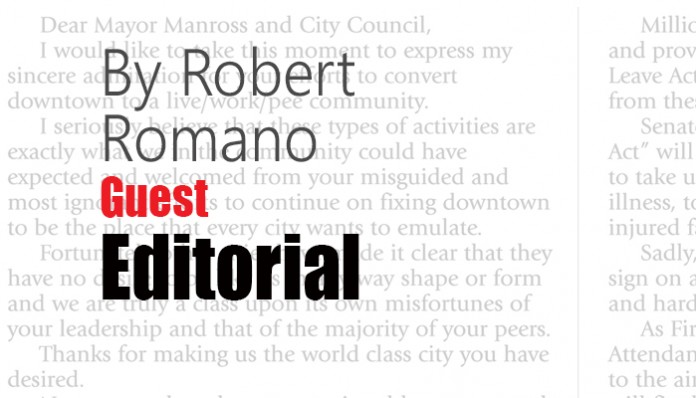Presumptive Republican presidential nominee Donald Trump has doubled down on his call for a halt in immigration from regions where radical Islam flourishes, in a June 13 speech at Saint Anselm College in Manchester, New Hampshire in response to the terrorist attack in Orlando, Florida.
“The immigration laws of the United States give the President the power to suspend entry into the country of any class of persons that the President deems detrimental to the interests or security of the United States, as he deems appropriate,” said Trump.
“I will use this power to protect the American people. When I am elected, I will suspend immigration from areas of the world when there is a proven history of terrorism against the United States, Europe or our allies, until we understand how to end these threats. After a full, impartial and long overdue security assessment, we will develop a responsible immigration policy that serves the interests and values of America,” Trump added.

Here, Trump is referring to 8 U.S.C. 1182(f), a broad grant of power by Congress under the heading, “Suspension of entry or imposition of restrictions by President,” which states, “Whenever the President finds that the entry of any aliens or of any class of aliens into the United States would be detrimental to the interests of the United States, he may by proclamation, and for such period as he shall deem necessary, suspend the entry of all aliens or any class of aliens as immigrants or nonimmigrants, or impose on the entry of aliens any restrictions he may deem to be appropriate. Whenever the Attorney General finds that a commercial airline has failed to comply with regulations of the Attorney General relating to requirements of airlines for the detection of fraudulent documents used by passengers traveling to the United States (including the training of personnel in such detection), the Attorney General may suspend the entry of some or all aliens transported to the United States by such airline.”
In fact, there are currently 16 such presidential travel restrictions in place against certain countries.
The proclamations currently in effect are the Belarus Proclamation 8015, the Bosnia Proclamation 6749, the Combat Trafficking In Persons Proclamation 8342, the Corruption Proclamation 7750, the Cuba Proclamation 5377, the Haiti Proclamation 6685, the High Seas Interdiction Proclamation 4865, the Human Rights Proclamation 8697, the Lebanon Proclamation 8158, the Presidential Proclamation 8693, Travel Bans, the Serbia and Montenegro Proclamation 7249, the Sierra Leone Proclamation 7062, the Sierra Leone Proclamation 7359, the Sudan Proclamation 6958, the Western Balkans Proclamation 7452, and the Zimbabwe Proclamation 7524.
At least one of those proclamations dates back to 1981. And President Barack Obama is no stranger to these restrictions, either. He has issued two.
But how did Obama respond to Trump’s statement calling for closing U.S. borders to terror hotspots? “It betrays the very values America stands for,” said Obama, pushing back against Trump’s proposal. As if a president lacked requisite authority to do so.
“We now have proposals from the presumptive Republican nominee for President of the United States to bar all Muslims from emigrating to America,” said Obama.
Yet, as Trump noted in his speech, his call is actually broader than that now, calling for a “[suspension of] immigration from areas of the world when there is a proven history of terrorism…” Which, the law of the land allows any president to do exactly that, to “suspend the entry of all aliens or any class of aliens as immigrants or nonimmigrants, or impose on the entry of aliens any restrictions he may deem to be appropriate.”
There need not be any religious test. A president could shut down the borders altogether if that was his or her wish, whenever it is found “that the entry of any aliens or of any class of aliens into the United States would be detrimental to the interests of the United States.”
So what is Obama talking about?
Trump acknowledged that his proposal would not have stopped the Orlando killer necessarily, a U.S. citizen born here but whose parents emigrated from Afghanistan. “Yes, there are many radicalized people already inside our country as a result of the poor policies of the past,” he said, adding, “But the whole point is that it will be much, much easier to deal with our current problem if we don’t keep on bringing in people who add to the problem.”
Is that really so unreasonable?
It wouldn’t be the first time. In World War II, then-President Franklin Roosevelt issued nation-based travel restrictions against the Germans, Italians, and Japanese. How is Trump’s call that much different?
Until such time that authorities can get a better handle on the danger posed from radical Islam abroad and here at home, broader travel restrictions may be warranted until the war is over.
But let’s not pretend that this represents some great threat to American values. Travel restrictions, such as were enacted in World War II, or anticipated under 8 U.S.C. 1182(f) are simply restrictions against areas that happen to be at war with us, who we are under no obligation to take in. It is a policy choice — and one that may prove necessary in the coming days to keep the Americans of all races and religions safe. Our borders don’t have to be open. Robert Romano is the senior editor of Americans for Limited Government.
Robert Romano is the senior editor of Americans for Limited Government.





